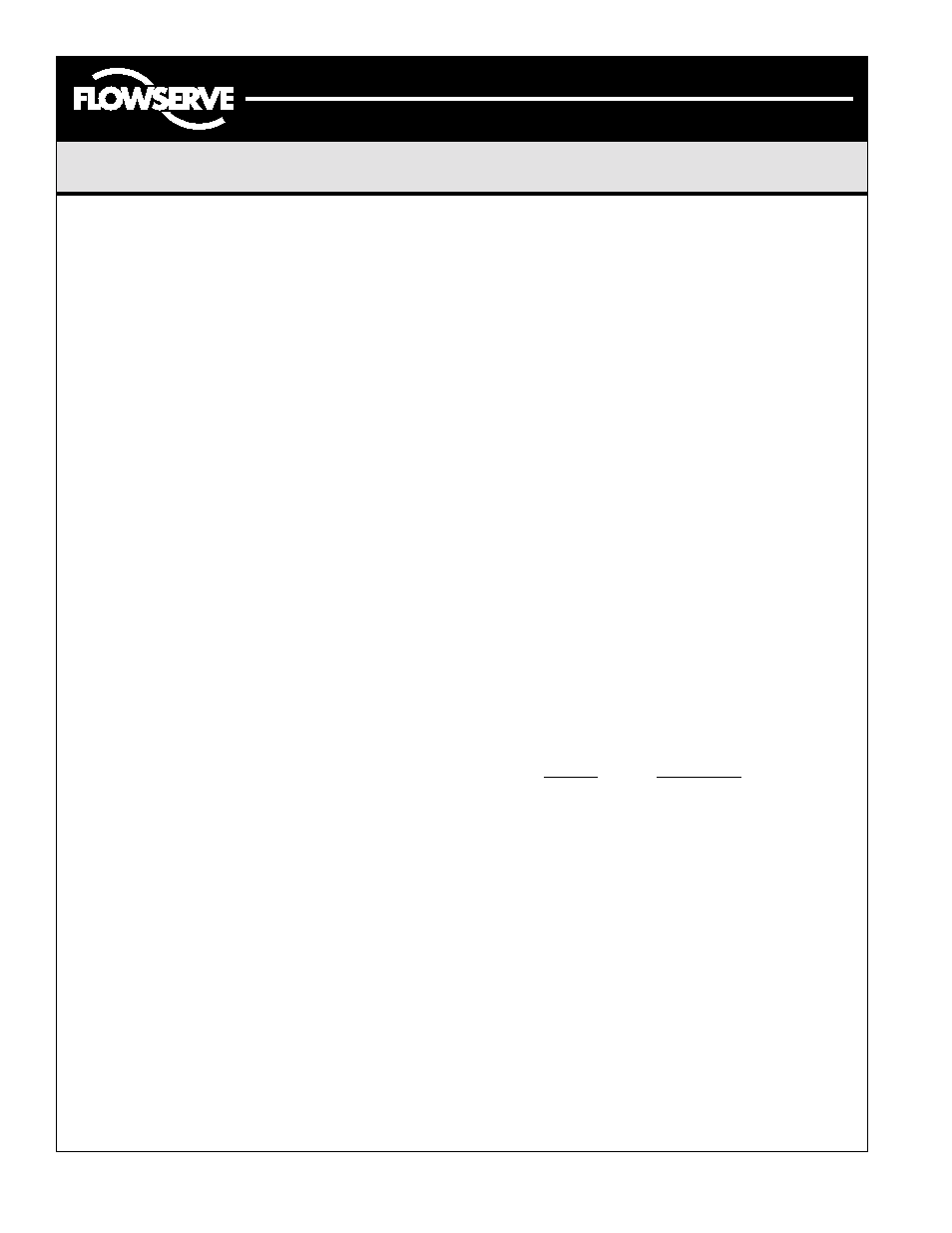Bolt torques, Maintenance instructions, How to order – Flowserve R5 Actuator User Manual
Page 2

B00125-3 (AUTO-8) 3/02
© 2002, Flowserve Corporation, Printed in USA
3-Position Control/Dribble Control
SR Limit Switch Method
Automax Valve Automation Systems
Installation, Operation and Maintenance Instructions
Flowserve Corporation
765 South 100 East
1978 Foreman Dr.
Flow Control Division
Provo, Utah 84606
Cookeville, TN 38501
www.flowserve.com
Phone: 801 373 3028
Phone: 931 432 4021
1. Disconnect all air and electrical supplies from actuator.
2. Remove all accessories from actuator and dismount
from valve.
Spring Group
NOTE: PERSONAL INJURY may result if Step 2
is attempted before Step I is completed.
1. Apply air pressure to port DA2 to release spring pressure
from the Stop Bolt (10). Remove both Stop Bolts (10)
and release air pressure. This will relieve the majority of
the spring preload.
2. The Spring Cartridge (47) is welded into an integral
component and cannot be disassembled. To remove from
actuator, remove Spring Cartridge Adapter Nuts (34) and
Lockwashers (35). At this point, all spring forces are
contained within the welded cartridge and the Spring
Cartridge can be removed from the center body.
3. Before reassembling Spring Cartridge to body, make sure
stud threads are clean of any dirt, shavings, or other
debris. Clean threads with rag and solvent if required,
and lubricate threads with an anti-sieze compound.
Note: Support the Spring Cartridge (47) during removal
so as not to damage the Piston Rod (7).
Pressure Group
1. Check that all air is exhausted from the cylinder.
2. Remove the Tie Rod Nuts (37), Tie Rods (36), and the
Endcap (30).
3. Slide the Cylinder (32) over and off the Piston (31),
being careful not to scratch or dent the honed and
chrome plated surface of the cylinder.
4. Remove the Piston Bolt (38) and Piston Bolt Lock-
washer (39). Remove the Piston (31) and Piston Face
Seal (44).
5. Remove the Adaptor Stud Nuts (34) and Lockwashers
(35) and carefully slide the Adapter (29) over the
Piston Rod (7).
Housing (Body Group)
NOTE: Spring Cartridge must be removed and
air pressure must be removed from cylinders before
the cover can be taken off the body.
1. Remove cylinder Piston Rod (7) and spring side
Piston Rod (7) from Yoke Block (4).
2.
Remove Body Cover Bolts (18) and Lockwasher
(19). Remove cover by turning cover jackscrews (40)
until cover is separated enough to pry apart.
3.
Remove Yoke Pin Rollers (5), Yoke Pin (6), and Yoke
Block (4).
4.
Lift Yoke (3) out of body bore.
5.
Remove Yoke Seals (23) and Yoke Bushing (21).
Reassembly Procedures
1.
Inspect all parts for wear and replace any worn parts
as needed. Normally, all seals and gaskets should be
replaced when reassembling an actuator.
2.
Clean and grease all components with a multipurpose
“polymer” fortified grease such as DuBois Chemical
MPG-2. For low temperature units, use Lubriplate Low
Temperature grease or equivalent.
3.
Reverse the disassembly procedures to reassemble.
Use the proper torque from the torque chart on the Tie
Rod Locknuts (37), the Adapter Nuts (34), the Spring
Cartridge Adapter Nuts (34), and the Piston Bolt (38).
These threads should be lubricated with Locktite
Threadlocker 242 or equivalent prior to assembly.
4.
See parts and materials drawing which depicts all
required spare parts.
Test the actuator for smooth operation and air leakage at
service pressure before re-installing.
Bolt Torques
Bolt Size
Torque Range
Maintenance Instructions
Disassembly Instructions
Piston Bolt (38)
(SAEGr.8 Bolt)
1 1/4”-7 UNC
1014-1116 ft.lb.
Adapter Studs (34)
(ASTM Al 93 Gr. B7)
7/8”-9 UNC
364-403 ft.lb.
Tie Rods (36)
(ASTM A311 Stressproof)
7/8”-9 UNC
336-371 ft.lb.
1”-8 UNC
503-556 ft.lb.
1 1/4”-7 UNC
503-556 ft.lb.
Note:
14”-16” cylinders have 7/8”-9 Tie Rods
18”-22” cylinders have 1”-8 Tie Rods
24” cylinders have 1 1/4”-7 Tie Rods
How To Order:
R5
22
14
SR1
H
V
(1)
(2)
(3)
(4)
(5)
(6)
Page 2 of 4
